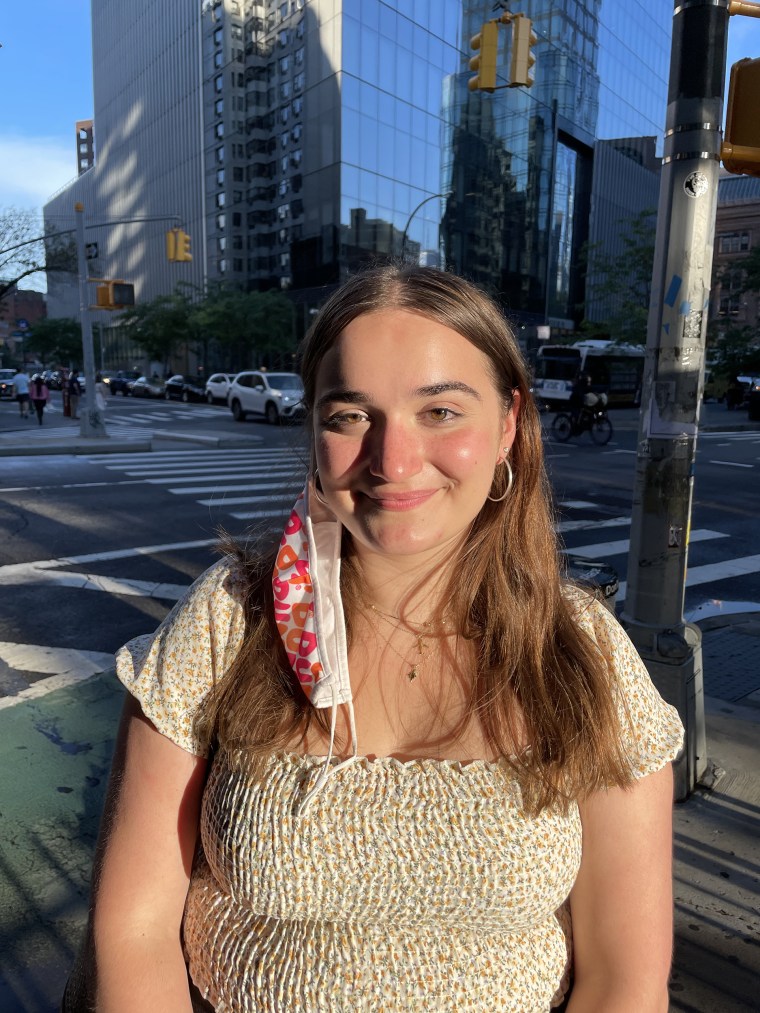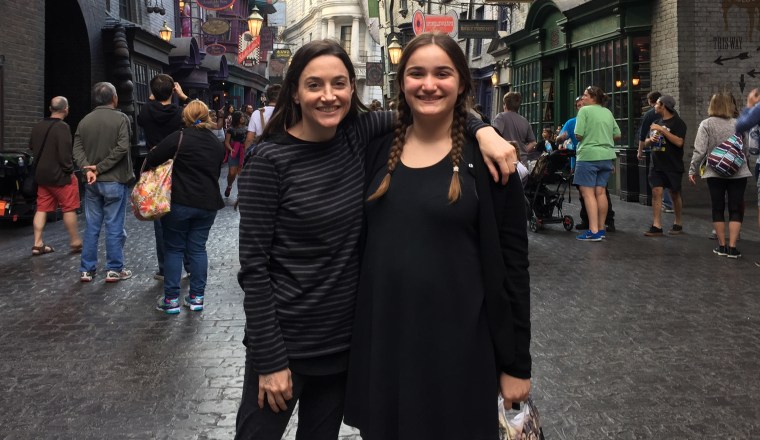When I was 7 years old, I was the subject of what Jezebel called “The Worst Vogue Article Ever.”
The Vogue essay was written by my mother, Dara-Lynn Weiss, in 2012. It told the story of how she helped me to lose weight by putting me on a restrictive diet. In the piece, my mother recalled banning me from participating in Pizza Fridays at school and depriving me of dinner after she learned that I’d indulged in brie and baguette during French Heritage Day.
“I dressed down a Starbucks barista when he professed ignorance of the nutrition content of the kids’ hot chocolate whose calories are listed as ‘120-210’ on the menu board,” my mother wrote. “Well, which is it? When he couldn’t provide an answer, I dramatically grabbed the drink out of my daughter’s hands, poured it into the garbage and stormed out.”
I remember being at restaurants and my mom asking the server to bring me a half portion. Sometimes I’d lie about what I ate at birthday parties because I knew she wouldn’t react well. I also started sneaking food because there was this shame around eating.
At the end of my weight loss journey, over the course of a little less than a year, I grew two inches and lost 16 pounds. I was no longer clinically obese or at risk of developing high blood pressure, high cholesterol and Type 2 diabetes. But my mom was vilified by the media for fat-shaming a child. She was labeled the "worst mother in NYC” by one newspaper columnist.
A decade later, I can tell you that she is not.

At the end of the day, I know my mom had my best interests at heart. She was worried about my health. She understood the social stigma of obesity and wanted to protect me. Throughout the entire effort to get me to lose weight, the explanation and justification was always very clear to me: It wasn’t about having a thin daughter.
It’s also important to note that my mom also has her own issues with body image. As she shared in the Vogue story, “I have not ingested any food, looked at a restaurant menu, or been sick to the point of vomiting without silently launching a complicated mental algorithm about how it will affect my weight.”
At a certain point, I had to decide: Am I going to be angry with my mom for the rest of my life, or am I going to try to understand her love? For my own sake, and for the sake of having a good relationship with my mother, I needed to find the logic and kindness in what she did.
For my own sake, and for the sake of having a good relationship with my mother, I needed to find the logic and kindness in what she did.
I’m now 18, and I consider my mom to be one of my best friends.
We watch our favorite TV shows together — she's been saving them all year while I've been at college to watch with me over the summer — and go shopping. We gossip and vent to each other. Sometimes I FaceTime her for no reason other than just to say hi.
My mother has never formally apologized, but she has expressed regrets. We’ll be looking at old pictures and she’ll say, “Sometimes I feel like I made you lose too much weight.”

After the article came out, several news outlets described my mom as a socialite. I laughed when I heard that. She is not. She is incredibly introverted, and she’s also very maternal. I can’t tell you how many times she traveled 30 minutes to my school with Advil because I was having cramps. She packed my lunches for me long after I could have done that myself. I come from a very normal family.
And that’s what is so confusing about this story — it does not make sense that my mom would have written an article like this. We spoke recently about her choice to do so and what the publicity meant for her. She said she was motivated by anger. Anger that obese children were labeled as lazy and victims of poor parenting. “If this could happen to my Betty, who’s the best, it couldn’t be that sort of problem.” She wanted to empower others to help their awesome kids, too.
My mom says she was was disappointed with the response to the article. She had hoped for more from the public, more from the society we live in.
My relationship with my appearance is a bit more complicated. I’m a body-positive advocate, first and foremost. But I’m also taking a prescription medication to curb my appetite. When I suggested the drug to a doctor, she agreed that, given my history, I was a good fit for the treatment. I still enjoy food, but I’m not hungry all the time. Sometimes I’ll look at photos of skinny women on Instagram and feel bad about myself. Everyone does. But in these moments of insecurity, I choose to write and post online. I show others that these feelings are normal and don't define my beauty or me. I've chosen to use my struggle to make positive change and create an empathetic space.
Does my mom factor into my insecurities? Of course; my mindset is absolutely crafted by her. But I can’t place the blame entirely on one person. I was bullied for my weight before she wrote the Vogue article. I grew up in New York City, where there were magazine stands on every corner. I understood that I existed in a body that did not fit society’s norms for beauty.
I was bullied for my weight before she wrote the Vogue article. ... I understood that I existed in a body that did not fit society's norms for beauty.
It bothers me that I still aspire to this standard of skinniness, even 10 years after my weight became a topic of public discussion. I struggle to square my competing habits and attitudes. It’s an ongoing battle, but I just try to give myself grace and keep in mind the societal pressures that inform the way I think.
My mom confronted massive adversity to destigmatize a struggle that girls like me face across the country. She wrote openly and frankly about a topic people tend to only whisper about. I choose to continue where she left off: I speak openly and frankly, never in a whisper.
This interview has been edited and condensed.
